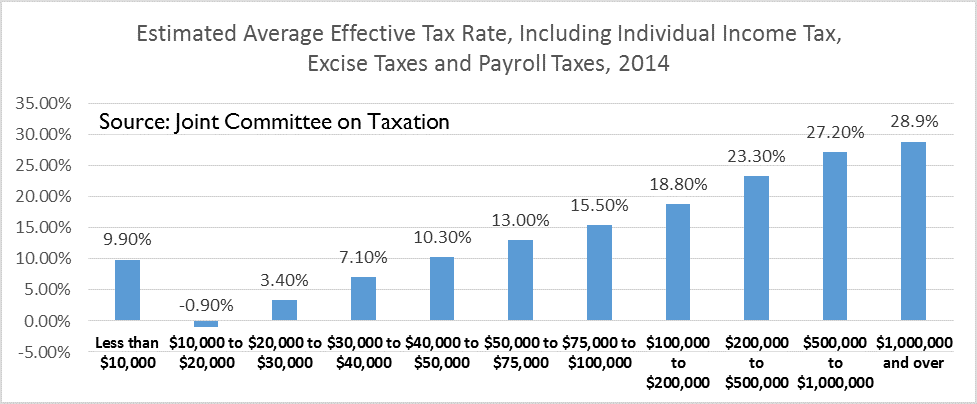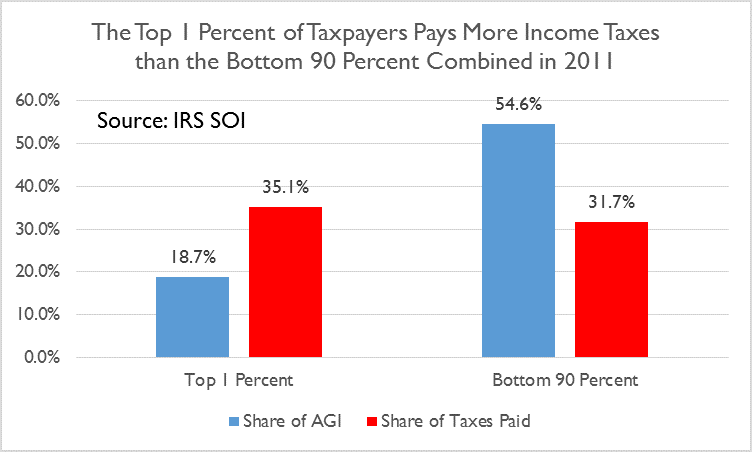So far, we have seen little of Democratic presidential frontrunner Hillary Rodham Clinton’s ideas for tax reform. She has called for increasing the top capital gains tax and ending the multi-billion-dollar a year “carried interest” tax loophole that has long benefitted wealthy private equity and hedge fund managers. But that’s low-hanging Democratic fruit.
So it was interesting to hear her embrace the so-called “Buffett rule” on Wednesday during a joint campaign appearance in Omaha, Nebraska with the legendary financier Warren Buffett.
Related: How Ryan’s Big Tax Deal Could Lead to Major Reform
At a time when candidates of both parties are focusing more on wage stagnation and income inequities between the very rich and the very poor, Clinton told a large audience of Nebraskans she intends to seek a fairer tax system if she is elected president.
At the core of the “Buffett rule” is the principle that no household making more than $1 million a year should pay a smaller share of income in taxes than middle-class families pay. The average tax rate paid by the highest-income Americans has plummeted to nearly the lowest rate in over 50 years, according to a 2012 White House study.
“The wealthiest 1-in-1,000 taxpayers pay barely a quarter of their income in Federal income and payroll taxes today—half of what they would have contributed in 1960,” according to the report. Moreover, the top 400 richest Americans—all making over $110 million at the time, had to pay only 18 percent of their income in income taxes in 2008.
“The Buffett rule says that millionaires should pay at least 30 percent income tax rates instead of 10, 15, 20 — I want to go even further,” Clinton said, according to The Hill. “There has been too much that has led to the wealthy getting wealthier.”
Related: Why Is Congress Giving Away $500 Billion in Unfunded Tax Breaks?
With her chief rival, Democratic socialist Sen. Bernie Sanders of Vermont forcing her further to the left on economic issues, the former secretary of state said, "I want to be the president for the struggling, the striving and the successful, but right now, there has been too much that has led to the wealthy getting wealthier at the expense of hard-working families.”
Buffett, 85, the chair, CEO and top shareholder of Berkshire Hathaway, is considered one of the wealthiest men in the world. He inspired a slew of prominent Democrats, including President Obama and Sen. Elizabeth Warren of Massachusetts with his now famous observation that he paid a lower effective tax rate than his secretary because of how badly the federal tax code is tilted in the favor of wealthy Americans.
In 2011, Obama’s advisers drafted a tax plan that would apply a minimum tax rate of 30 percent on individuals who were making more than a million dollars a year – a plan that would affect 0.3 percent of taxpayers. The idea never went anywhere. Last year, Warren reintroduced a bill inspired by the Buffett Rule called the “Fair Share Tax.”
Warren’s proposed higher effective tax rate on millionaires would generate revenues to pay for a program permitting students to refinance their higher education loans at lower interest rates. Some have estimated that the “Buffett rule” could generate at least $36.7 billion a year in fresh revenue if it were embedded in the tax code.
Related: Why Congress Is Throwing in the Towel on Tax Reform
Economists have long been divided over the question of whether wealthier Americans are paying their “fair share” of taxes or whether they and their accountants are using the byzantine federal tax code to escape paying hundreds of billions of dollars in tax revenue.
In 2009, for instance, some 22,000 households earning more than $1 million a year paid less than 15 percent of their income in income taxes. At the same time, 1,470 of them managed to escape paying any federal income taxes on their vast incomes, according to Internal Revenue Service data.
However, Kyle Pomerleau, the director of Federal Projects at the non-partisan Tax Foundation, argued in an analysis last year that “Our progressive tax system taxes people at higher rates as they earn more.” Citing a Joint Committee on Taxation study, Pomerleau said that those making $1 million or more pay an effective tax rate of 27 percent on their federal individual income tax.
Related: 6 Tips from Warren Buffett on What to Do During a Market
“Although not an effective tax rate of 30 percent, it is still higher than any other income group,” he wrote. Even if one was to toss in the effect of payroll and excise taxes – which tend to hit lower income people harder than the wealthy – “the distribution is still very progressive.”
Finally, Pomerleau noted, high-income taxpayers pay both the highest effective federal tax rates and a disproportionately large share of overall federal income taxes. According to the most recent IRS data, the top 1 percent paid 35 percent of all income taxes in in 2011. That accounted for more than everyone else paid combined among the remaining 90 percent of taxpayers.
“Without knowing too many details, it is hard to say if Clinton’s proposal would have the exact same issues,” Pomerleau said in an email message. “However, I don't think another minimum tax is necessary. We already have the AMT (Alternative Minimum Tax). Even more, if policymakers believe the effective rates of the rich are too low, there are more straight forward ways to increase them, such as raising marginal rates on income or eliminating/capping itemized deductions.”
Here are two charts cited by Pomerleau:







